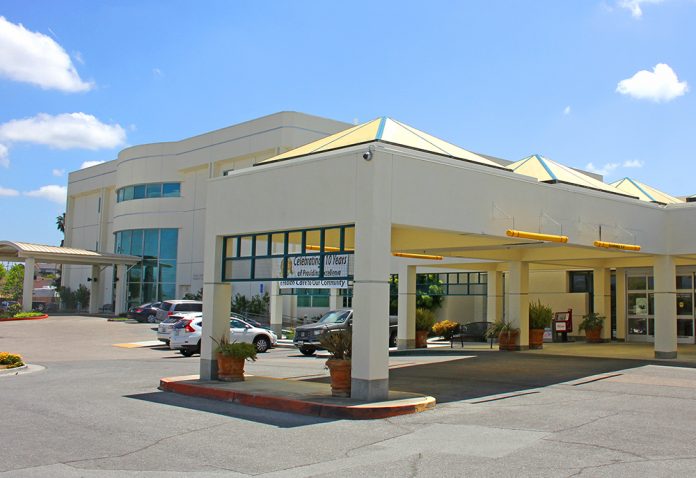Hazel Hawkins Memorial Hospital has received a grant from the California Bridge Program—a ground-breaking statewide initiative designed to increase access to treatment for opioid use disorders.
The Hollister hospital will receive up to $129,000 to fund a new opioid addiction treatment
The program enables the hospital’s Emergency Department to treat anyone who is experiencing withdrawal from opioids or would like to stop taking them.
The program starts patients on medication-assisted treatment by administering an initial dose of buprenorphine for opioid addiction, a safer alternative to treating patients with methadone or prescription painkillers.
“The treatment program is one more service we are trying to offer this community as the opioid crisis is soaring,” said Emergency Department Medical Director Dr. Michael Bogey. He welcomes all patients in need to come in for help. “We provide the first step,” he said.
A unique aspect of the hospital’s opioid treatment program is the use of telemedicine to help patients secure ongoing treatment.
The staff assists patients in connecting via an iPad with Bright Heart Health, a telemedicine provider. Patients meet medical staff and counselors via video conferencing and thereafter connect with Bright Heart from home or anywhere with an internet connection. Bright Heart prescribes and monitors medications, and counselors help develop strategies to combat opioid abuse.
In addition to BrightHeart Health, Hazel Hawkins also works with local recovery programs in San Benito and surrounding counties.“The best thing about this program is that it’s emergency department-based, which means we are available around-the-clock to help guide patients through recovery,” said Eric Bergersen, who is currently the main liaison with the CA Bridge staff and oversees implementation of the program in conjunction with Bogey.
The hospital is part of San Benito County’s Opioid Task Force, working toward ending the opioid epidemic locally through community-wide mobilization. Together with the task force, the hospital will provide outreach to homeless communities and shelters, treatment partners, and vulnerable patient populations in the community to make them aware of the new program.










